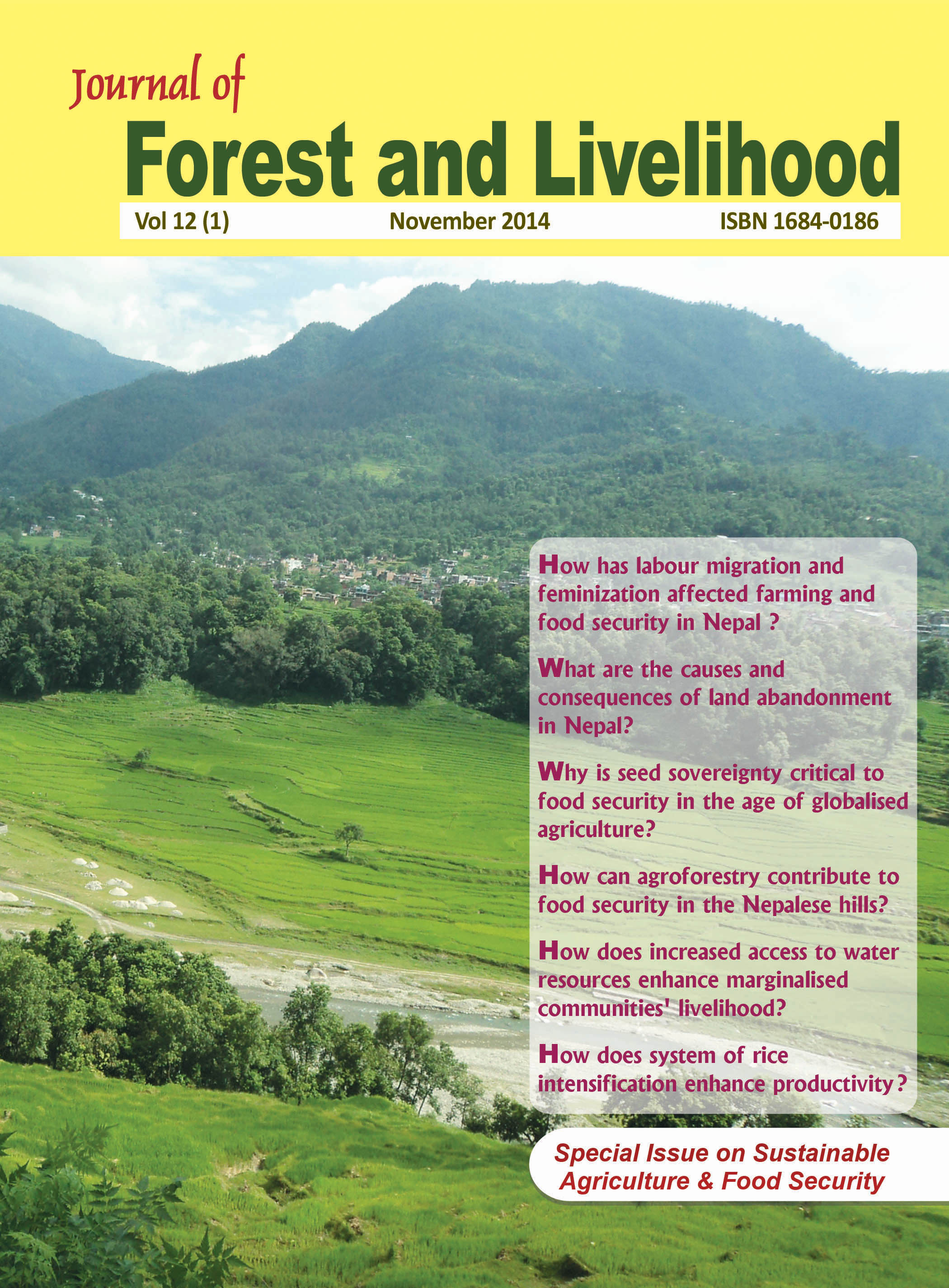Accessing Water Resources: A Case Study of Ways to Improve Access of Marginalized Communities to Underutilized Lakes for Fish Farming in Rukum and Kapilbastu Districts, Nepal
Keywords:
lake, water resources, marginalized communities, fish farming, level of incomeAbstract
This paper aims to examine the possibility of reducing poverty among marginalized communities by improving their access to hitherto underutilized natural lakes. Towards this aim, this paper first analyses the extent and root causes of poverty and food insecurity among the marginalized communities living by the Buddi and Syarpu Lakes in Kapilbastu and Rukum districts respectively. Second, it explores the ways these marginalized communities benefit from the lakes by discussing the practical experiment done to achieve this objective. The paper then demonstrates that fish farming in natural lakes not only introduced an alternative means of livelihood in the study area but also access of marginalized communities to water bodies can significantly reduce poverty and replace the practise of subsistence farming. The findings presented in this paper can be strong evidence of new possibility to increase income, improve food sufficiency level and generate employment opportunities in marginalized communities through an activity which was not perceived before. It recommends that the government should facilitate, with strong policy measures, marginalized communities to operate economic activities using underutilized water resources.
Downloads
Downloads
Published
How to Cite
Issue
Section
License
Copyright (c) 2014 ForestAction

This work is licensed under a Creative Commons Attribution-NonCommercial 4.0 International License.
CC-BY-NC: This license allows reusers to distribute, remix, adapt, and build upon the material in any medium or format for noncommercial purposes only, and only so long as attribution is given to the creator.





